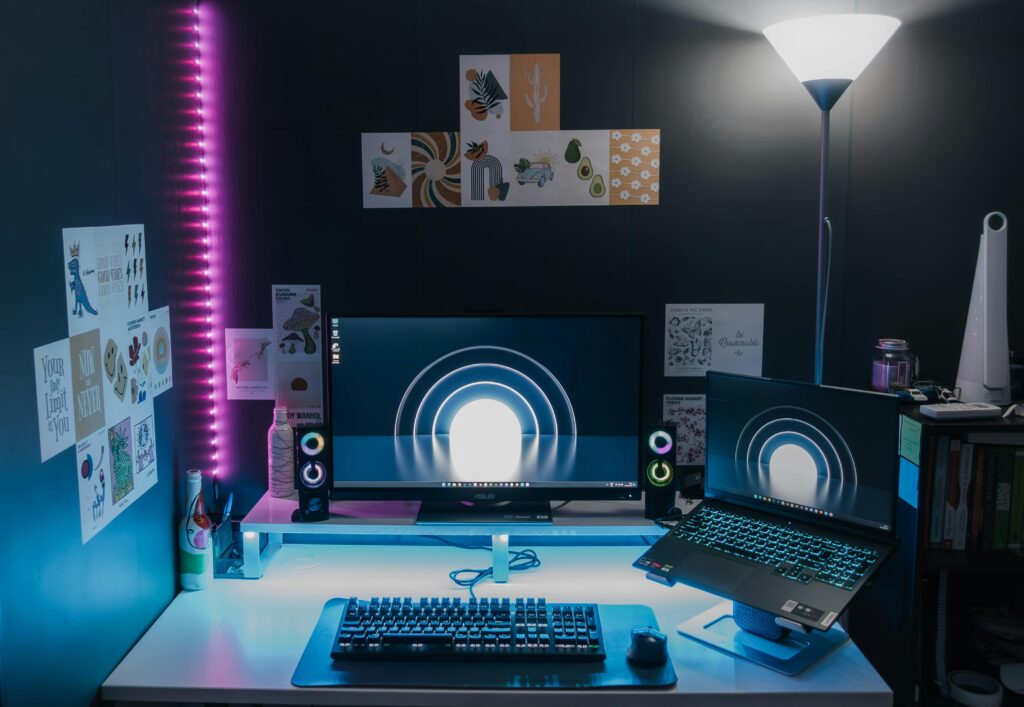Hey there, fellow tech enthusiasts! So, you’re probably here because you’ve got a burning question: Are gaming laptops good for hacking? Whether you’re thinking about diving into ethical hacking or just curious about what makes a laptop hacking-friendly, you’re in the right place. Let’s crack this topic wide open and figure it out together.
Quick Comparison Table: Gaming Laptops vs. Standard Laptops for Hacking
| Feature | Gaming Laptops | Standard Laptops |
|---|---|---|
| Processing Power | High (often Intel i7/i9, AMD Ryzen 7/9) | Moderate to High (varies) |
| Graphics | Dedicated GPUs (e.g., NVIDIA RTX) | Integrated or low-end GPUs |
| RAM | Typically 16GB or more | 8GB to 16GB |
| Storage | Fast SSDs (512GB – 1TB) | Varies (HDD or smaller SSDs) |
| Portability | Bulky and heavy | Lightweight and portable |
| Battery Life | Average (4-6 hours under load) | Better (6-10 hours) |
| Price | Expensive ($1,000+) | Budget-friendly options |
Why Gaming Laptops are a Solid Choice for Hacking
Let’s get this out of the way: gaming laptops are powerhouses. They’re designed to handle demanding tasks like rendering detailed game graphics, which coincidentally makes them great for hacking tasks. Here’s why:
1. Processing Power
Gaming laptops are equipped with high-performance processors, often Intel Core i7/i9 or AMD Ryzen 7/9. These CPUs can crunch numbers, run virtual machines (VMs), and handle heavy multitasking without breaking a sweat. If you’re into penetration testing or using tools like Metasploit, Burp Suite, or Wireshark, a strong CPU is your best friend.
2. Ample RAM
Hacking often involves running multiple VMs, analyzing data, or simulating network environments. Gaming laptops typically come with at least 16GB of RAM—plenty for most hacking tasks. And if you’re running tools like Kali Linux, you’ll appreciate the extra memory for smoother performance.
3. High-Quality GPUs
Wait, what does a GPU have to do with hacking? While not all hacking tasks require a dedicated graphics card, GPU-accelerated tasks like password cracking (using tools like Hashcat) can benefit massively from a gaming laptop’s GPU. Imagine cracking passwords at lightning speed—that’s the power of a dedicated NVIDIA or AMD graphics card.
4. Fast Storage
Speed is essential when working with large files or booting up multiple operating systems. Gaming laptops often come with NVMe SSDs that offer blazing-fast read/write speeds. This is a game-changer for hacking tasks like analyzing massive datasets or launching live-boot OSes.
5. Expandable and Customizable
Gaming laptops are often built to be upgraded. Want more RAM or storage? Most gaming laptops make it easy to add or replace components. This flexibility is a huge plus for hackers who need their machines to evolve with their needs.
The Downsides of Gaming Laptops for Hacking
While gaming laptops are great in many ways, they’re not perfect. Here are a few things to keep in mind:
1. Portability
Gaming laptops are big and heavy. If you’re planning to travel a lot or work in coffee shops, lugging around a 5-pound machine might not be ideal. There are thinner gaming laptops, but they often come at a premium price.
2. Battery Life
Gaming laptops are power-hungry beasts. Running VMs, tools, and networks will drain the battery even faster. If you’re away from a power outlet, this could be a dealbreaker.
3. Overkill for Some Tasks
If you’re just starting out with hacking or focusing on lighter tasks like coding or scripting, a gaming laptop might be overkill. You might not need that high-end GPU or extra features—and your wallet might thank you for going with a simpler option.
4. Price
Let’s be real: gaming laptops aren’t cheap. You’ll need to spend at least $1,000 for a decent one. If you’re on a budget, a standard laptop with decent specs could still get the job done.
What About Alternatives?
If a gaming laptop doesn’t quite fit your needs, here are some alternatives to consider:
- Workstation Laptops: These are designed for professionals and can handle hacking tasks just as well. They’re often lighter and have better battery life.
- Custom-Built Desktops: If portability isn’t a concern, a desktop with custom specs can offer better value and performance.
- Ultrabooks with Good Specs: For lighter tasks, ultrabooks like the Dell XPS or MacBook Pro (running a Linux VM) are worth considering.
Tips for Choosing the Right Gaming Laptop for Hacking
If you’re set on getting a gaming laptop, here’s how to pick the right one:
- Prioritize CPU and RAM: Go for at least an Intel i7 or Ryzen 7 with 16GB of RAM.
- Check the GPU: If you plan to do GPU-intensive tasks, get a laptop with an NVIDIA RTX 3060 or better.
- Storage Matters: Aim for at least a 512GB SSD. More is better if you plan to dual-boot or run multiple VMs.
- Port Selection: Ensure it has enough USB ports, HDMI, and maybe even an Ethernet port for network testing.
- Cooling System: Hacking tasks can be intense, so a laptop with good cooling is essential to avoid thermal throttling.
- Build Quality: A solid chassis will endure the wear and tear of travel and constant use.
Final Thoughts
So, are gaming laptops good for hacking? Absolutely! Their power, speed, and expandability make them a fantastic choice for ethical hackers, cybersecurity professionals, and even hobbyists. However, they’re not the only option. Depending on your budget, needs, and lifestyle, you might find a better fit elsewhere.
At the end of the day, the best laptop for hacking is the one that meets your specific needs. Whether it’s a beastly gaming laptop or a lightweight ultrabook, the most important thing is to get started and keep learning. After all, tools are only as good as the hacker wielding them.
Got questions or recommendations for the best hacking laptops? Drop them in the comments below—let’s keep the conversation going!
Read more : What is the Best Laptop for Ethical Hacking?


